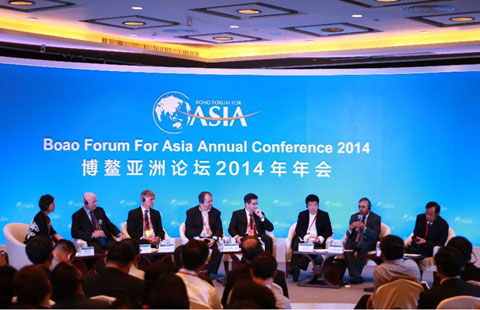A knowledge economy that works with ideas
By Cecily Liu (China Daily) Updated: 2014-04-14 07:12Having acted as the world's manufacturing factory with an export-led growth for the past 30 years, China has already built up an impressive manufacturing capability. Some indigenous brands such as the telecommunications firm Huawei Technologies Co Ltd and white goods maker Haier Group are now gaining international recognition.
Gregory says he has confidence in Chinese brands. He says Chinese manufacturing capability in electronics, cars and solar panels is already high and some Chinese factories are now leading industry standards.
|
 |
|
 |
In fact, some foreign companies that once considered China a good outsourcing destination have now moved manufacturing back to their home countries or to other emerging countries such as Vietnam and India for even cheaper manufacturing.
British companies such as the computer manufacturer The Raspberry Pi moved production from China back to Wales in 2012 and the food manufacturer Symingtons Family Estates moved manufacturing from China to Leeds last year.
This re-shoring process has generated considerable media attention, but Gregory says there is no data demonstrating it to be a widespread trend.
Companies that tend to move manufacturing back to Western markets may be motivated by the responsiveness to consumer demand such arrangements can allow for, he says.
"If the market is in the UK, and there's demand for change, people can just ring up the factory the next day, whereas if you've got two months of production coming from China on a ship, then you've got less flexibility," he says.
For this reason, brands that greatly target the Chinese consumer market will probably keep their production in China, especially for heavy products where transport costs are high.
Meanwhile, many Chinese companies are going global by acquiring Western brands. Gregory believes this is logical and sensible, because Chinese production capacity can develop behind the brands acquired and continue to make these brands great.

















